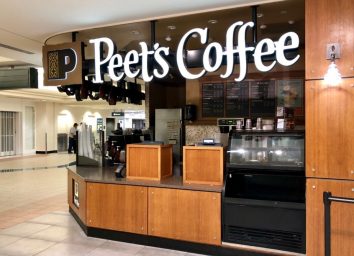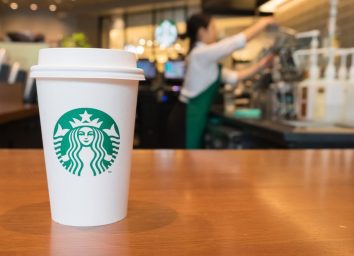9 Coffee Brands To Always Leave On Grocery Store Shelves
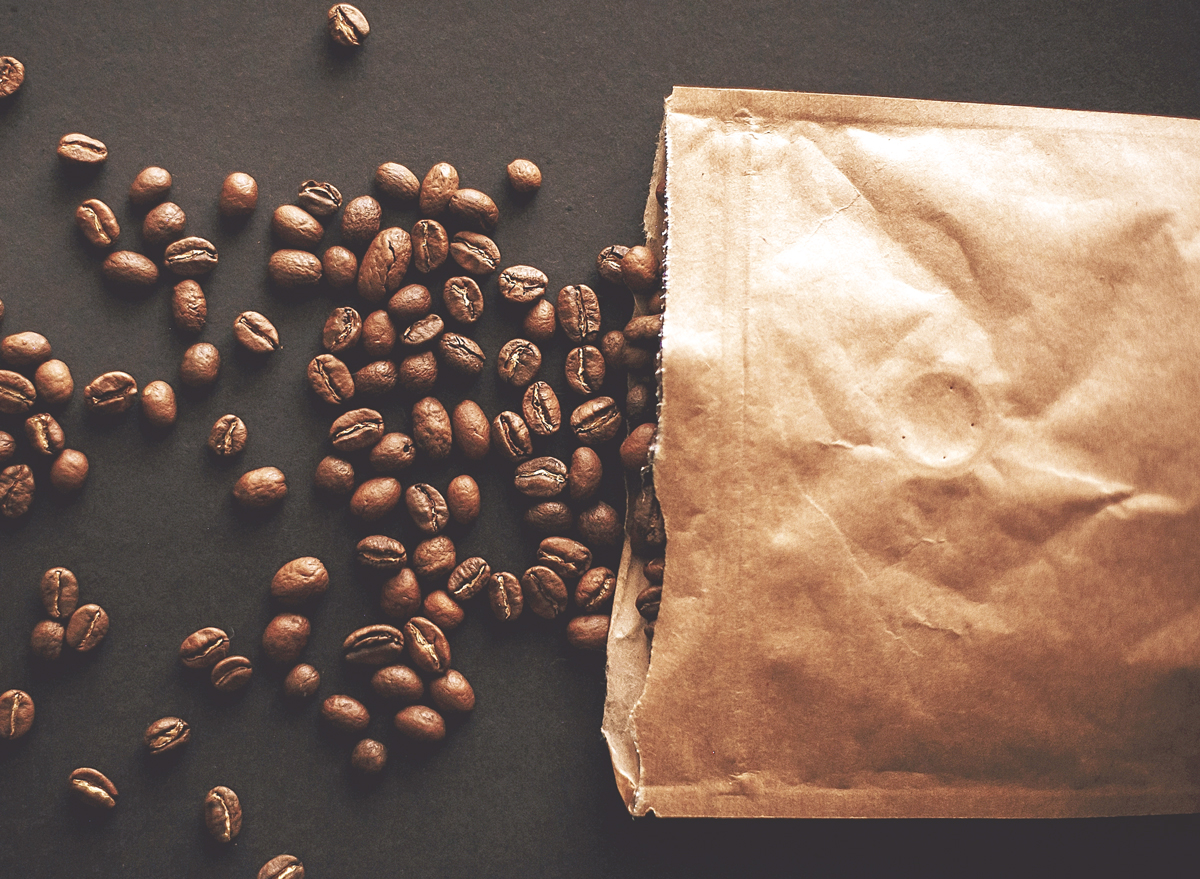
Some people see coffee as an absolute necessity, a liquid that must be consumed within minutes of waking. Others see it as a treat to be enjoyed at their leisure, whether over a weekend paper at home or at a coffee shop with a scone and a side of good conversation.
Coffee producers likewise fall into different categories. You have some brands that truly care about the quality of their product—the brands that are careful about the sourcing of the beans, keep tight control over roasts and grinding, and do everything they can to ensure that the coffee in a consumer’s cup is great stuff. Then you have the coffee brands that see their product merely as a commodity and do everything they can to cut costs, even if the result is a lower-quality coffee. And let’s not forget the brands that operate like the latter while pretending to be the former, which might be the worst of all. Ahead, we’ve identified nine coffee brands you might want to avoid on your next grocery run—whether because the ingredients are low-quality or there’s a lack of transparency around where the beans are sourced, or simply because consumers agree the taste is simply not up to snuff.
Death Wish Coffee
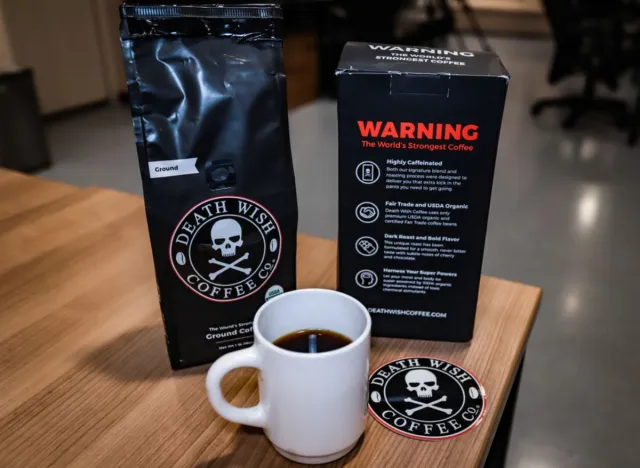
While Death Wish Coffee may be legendary for its aggressively high levels of caffeine, that doesn’t necessarily mean it’s the best coffee when it comes to quality. Although the packaging touts the fact that it only uses fair trade USDA organic beans, there’s little concrete information as to where those beans are sourced from. Death Wish’s website says its dark and medium roasts are made with a blend of Arabica and Robusta beans “primarily sourced from India and Peru.” Robusta beans provide that extra jolt of caffeine, but they’re also generally considered lower-quality versus Arabica. Some reviewers also claim that Death Wish’s whole-bean coffee is oily, which can be problematic for your standard at-home coffee grinder. And while we’re not complaining about the taste (or the extra jolt of caffeine), the price point is awfully high, too: A one-pound bag will run you around $20.
Yuban
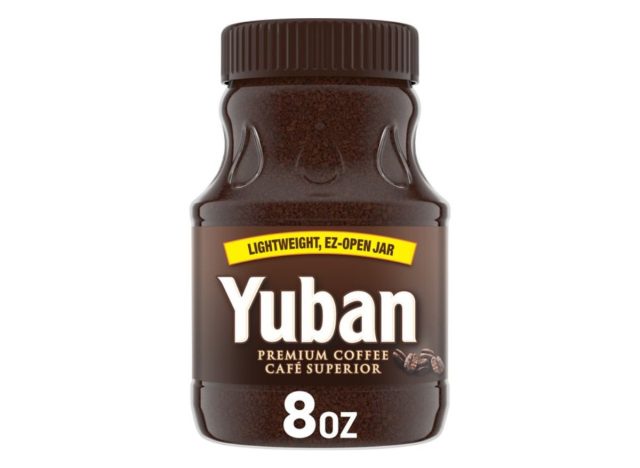
For years, Yuban was considered a brand that made good coffee for a great price. It was almost exotic, even, proudly made with 100% Colombian coffee beans. Then, recently, the recipe changed, according to Coffee Detective. And not for the better. Yuban is no longer 100% Colombian—and based on consumer response, it’s no longer good. In some of its advertising online, the company tries to hedge its way around this change, saying: “Made with Robusta and Arabica beans from Latin America and other tropical regions.” This most likely actually means: We sourced the cheapest beans we could get from wherever we could find them.
Green Mountain Coffee
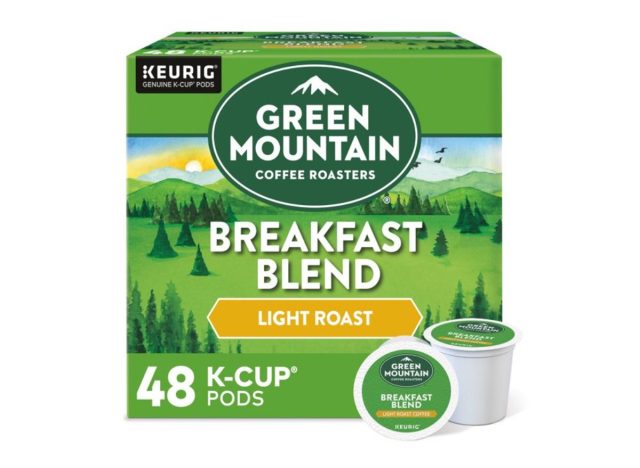
Once hailed as one of America’s best independent coffee companies, Vermont’s Green Mountain Coffee went the way of many brands: it went full-on corporate. According to CNN, by the late years of the 20th century, the brand had grown so big it bought up Keurig, the name with which Green Mountain Coffee pods are now synonymous in the minds of many, only to be bought out by private equity juggernaut JAB Holding in late 2015. Today, with an apparent focus on cost over quality, those little Green Mountain Coffee pods may contain inferior blends of coffee, according to Serious Eats.
Maxwell House
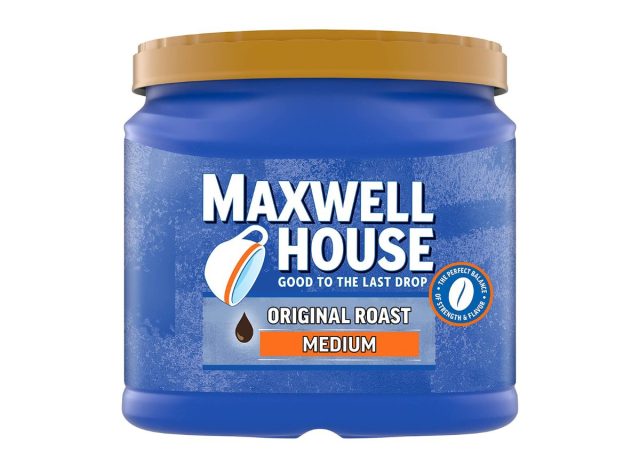
Maxwell House is a storied American brand that has been in the kitchen of many a family for many a generation. But that’s a testament to customer inertia, not product quality. Made with a blend of Arabica and cheaper, more bitter Robusta beans, according to The Old Coffee Pot, Maxwell House’s “Original Roast” coffee is cheap stuff, plain and simple. And in other cheap news, Kraft Heinz, the brand’s parent company, lost a lawsuit in 2021 over claims that they overstated how many cups of coffee a can of the stuff would brew, according to Bloomberg Law.
Nescafé

Not much of a surprise that a cheap instant coffee brand uses cheap ingredients. Nescafé coffee was never very good but got an ingredient change a few years back that made things even worse, according to Manchester Evening News. Customers quoted in that story compared the flavor of the new recipe to dishwater, calling it “vile” and “awful.” The company claimed that the change was intended to offer a more full-bodied, flavorful coffee, but to us, that sounds a lot like marketing jargon.
Folgers
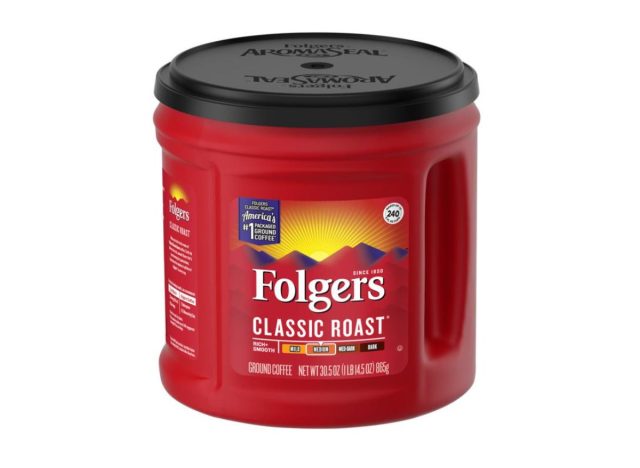
Brewed with care, Folgers can make a decent cup of coffee. Not great, but decent. But that’s not because of any premium level of ingredients. Their Classic Roast blends Robusta and Arabica beans claimed to be “mountain-grown,” which implies higher altitude but does not guarantee it, according to Leaf. Why does that matter? Because coffee grown at higher altitudes tends to be more complex and tasty, but it’s harder and more expensive to grow—remember that mountains start at low altitudes, so something can be classified as “mountain-grown” even if it was grown toward the bottom of the mountain.
Dunkin’ at Home K-Cups
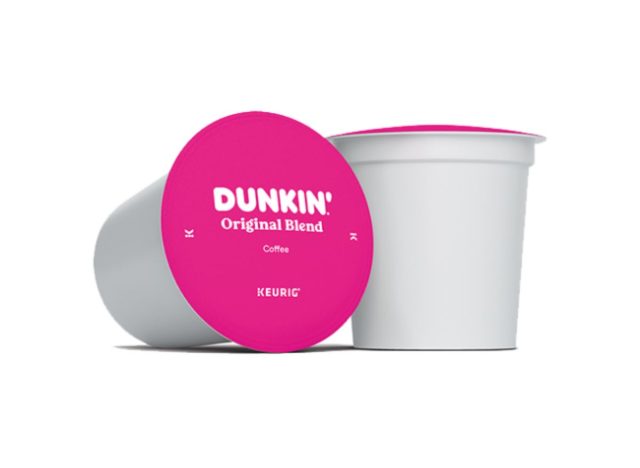
Dunkin’ has some pretty good coffee, at a very good price (especially when accompanied by a donut). Now, Dunkin’ at Home K-Cups—the quick-brew single cups you can make in a Keurig machine—on the other hand? That’s cheap Joe that’s best skipped. What’s the disconnect? A total and utter one: Dunkin’ at Home is made under license by the J.M Smucker company; it’s literally a different coffee.
McCafé at Home

Like Dunkin’, McDonald’s has surprisingly decent (though often dangerously hot) coffee in its stores, and yet offers very low-quality coffee when you buy the stuff to brew at home. According to Mashed, the McCafé coffee you can buy at stores tastes burnt and bitter even when brewed properly.
Seattle’s Best
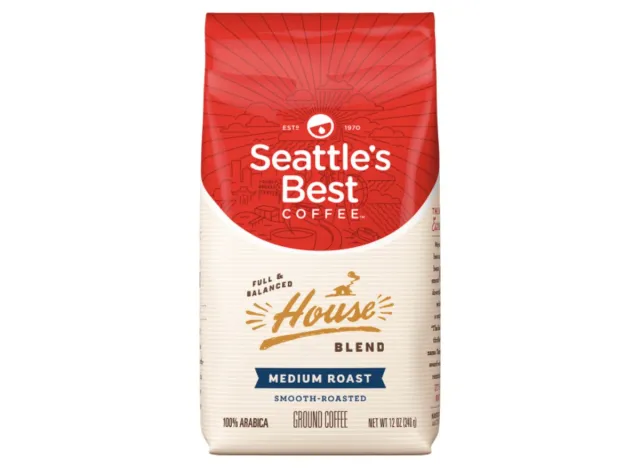
Though they take pains not to share this fact, Seattle’s Best isn’t the independent coffee brewer it might sound like. Starbucks bought the company in 2003, according to Business Insider, and then sold it to Nestle in October 2022. But rather than being primarily a brand with its own retail locations, it’s a cheaper coffee pushed out at places like gas stations and fast-food chains that don’t have their own proprietary coffees. Not that there’s anything inherently wrong with that, it just doesn’t make for the best brew if you take your coffee ritual seriously.
A previous version of this article was originally published in June 2022. It has been updated with new entries and information.

